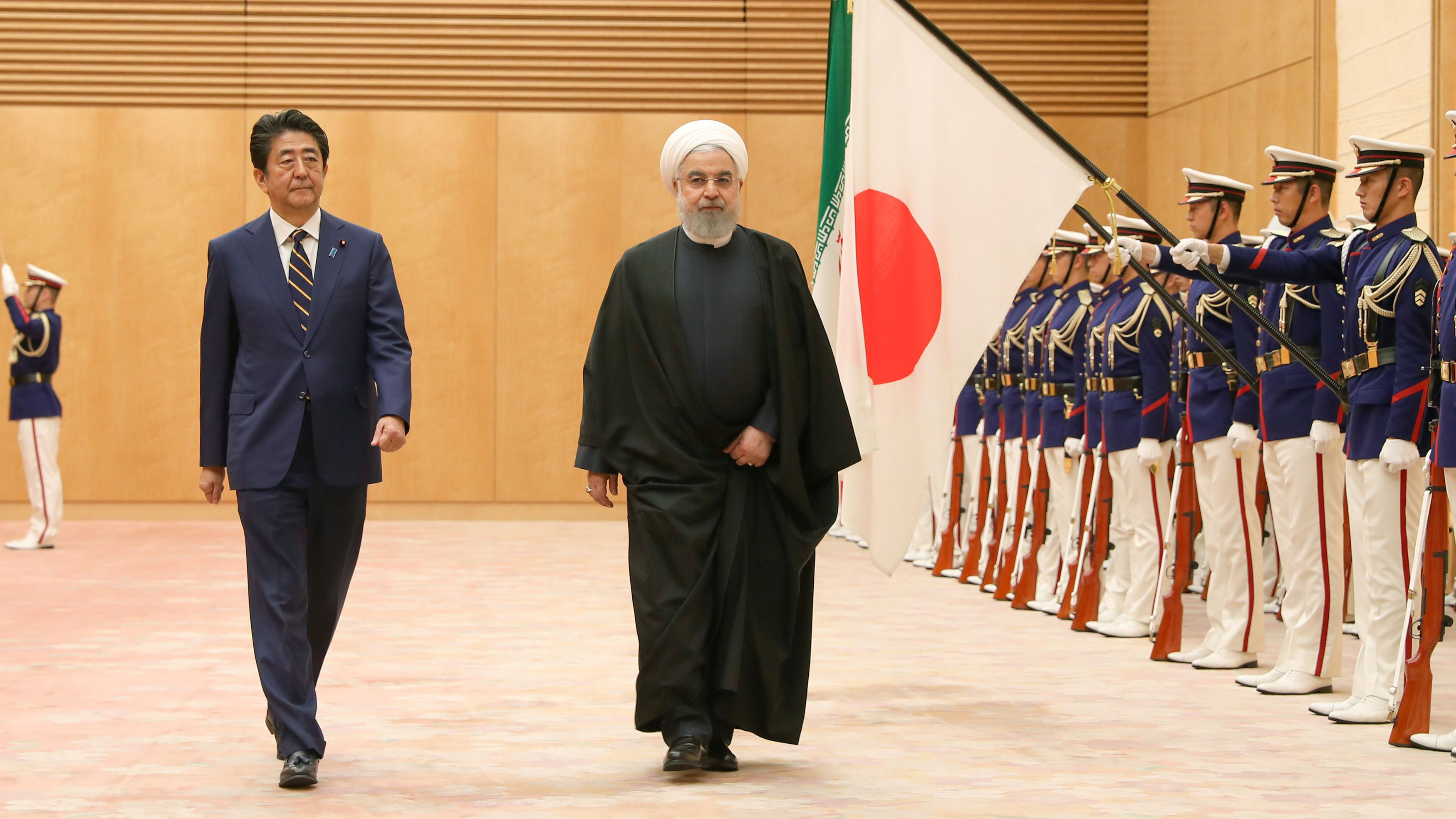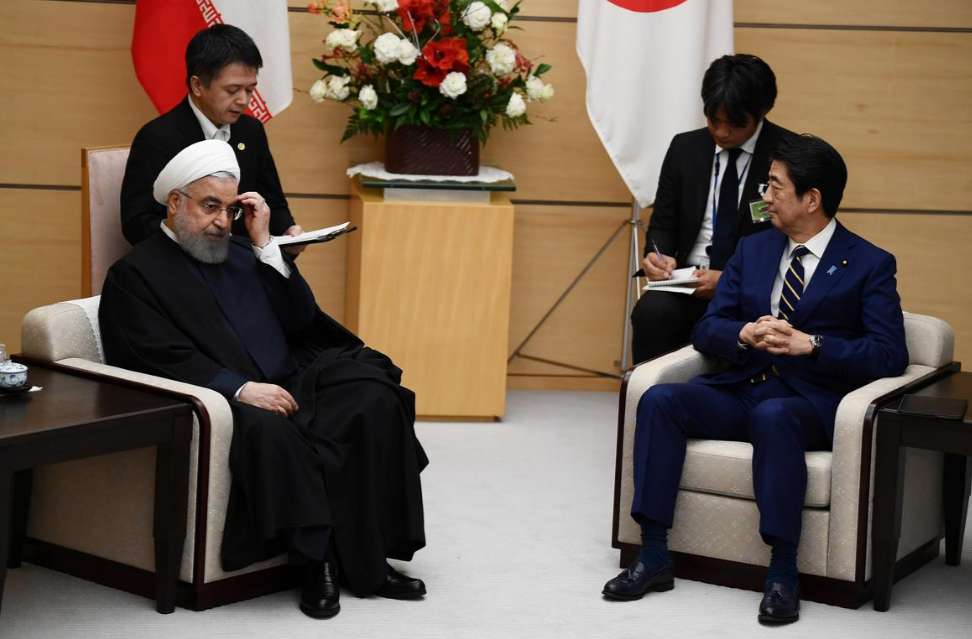03:19

Japanese Prime Minister Shinzo Abe on Friday briefed Iranian President Hassan Rouhani on Tokyo's plan to send naval forces to the Middle East to protect Japanese vessels.
Rouhani said that he understood Japan's intention to contribute to navigational safety, the official told a media briefing after the two leaders met in Tokyo.
"I'm highly concerned about tensions running high in the Middle East," Abe told Rouhani at the start of the meeting.
"As for Iran, I strongly hope the country will fully implement the nuclear agreement and play a constructive role for peace and stability in the region."
In turn, Rouhani asked Abe to work with other countries to help keep the nuclear deal alive.
"I hope Japan and other countries in the world will work hard to help keep the nuclear agreement in place."
Friction between Tehran and Washington has increased since last year when U.S. President Donald Trump pulled the United States out of Tehran's 2015 nuclear deal with six nations and re-imposed sanctions on the country, crippling its economy.
In response to re-imposed sanctions, Iran has gradually scaled back its commitments to the deal this year.

Japanese Prime Minister Shinzo Abe (R) and Iranian President Hassan Rouhani (L) meet in Tokyo, Japan, December 20, 2019. /Reuters Photo
Japanese Prime Minister Shinzo Abe (R) and Iranian President Hassan Rouhani (L) meet in Tokyo, Japan, December 20, 2019. /Reuters Photo
In May and June, several attacks took place on international merchant vessels, including Saudi tankers, in Gulf waters, which the United States blamed on Iran. Tehran denies the accusations.
Japan, a U.S. ally maintaining friendly ties with Iran, is looking to launch its own operation rather than joining a U.S.-led mission to protect shipping in the region.
The planned Japanese operation is set to cover high seas in the Gulf of Oman, the northern Arabian Sea and the Gulf of Aden, but not the Strait of Hormuz.
According to a draft plan approved by parties in the ruling coalition, Japan will deploy a destroyer and P-3C patrol aircraft for gathering information in the Gulf region – the source of nearly 90 percent of Japan's crude oil imports.
If an emergency situation arises, a special order will be issued by the defense minister to allow the forces to use weapons to protect ships under attack, according to the draft plan.
Local media have said the plan will be approved by Abe's cabinet as soon as next week.
(Cover: Japanese Prime Minister Shinzo Abe (L) and Iranian President Hassan Rouhani meet in Tokyo, Japan, December 20, 2019. /Reuters Photo)
(With input from Reuters)